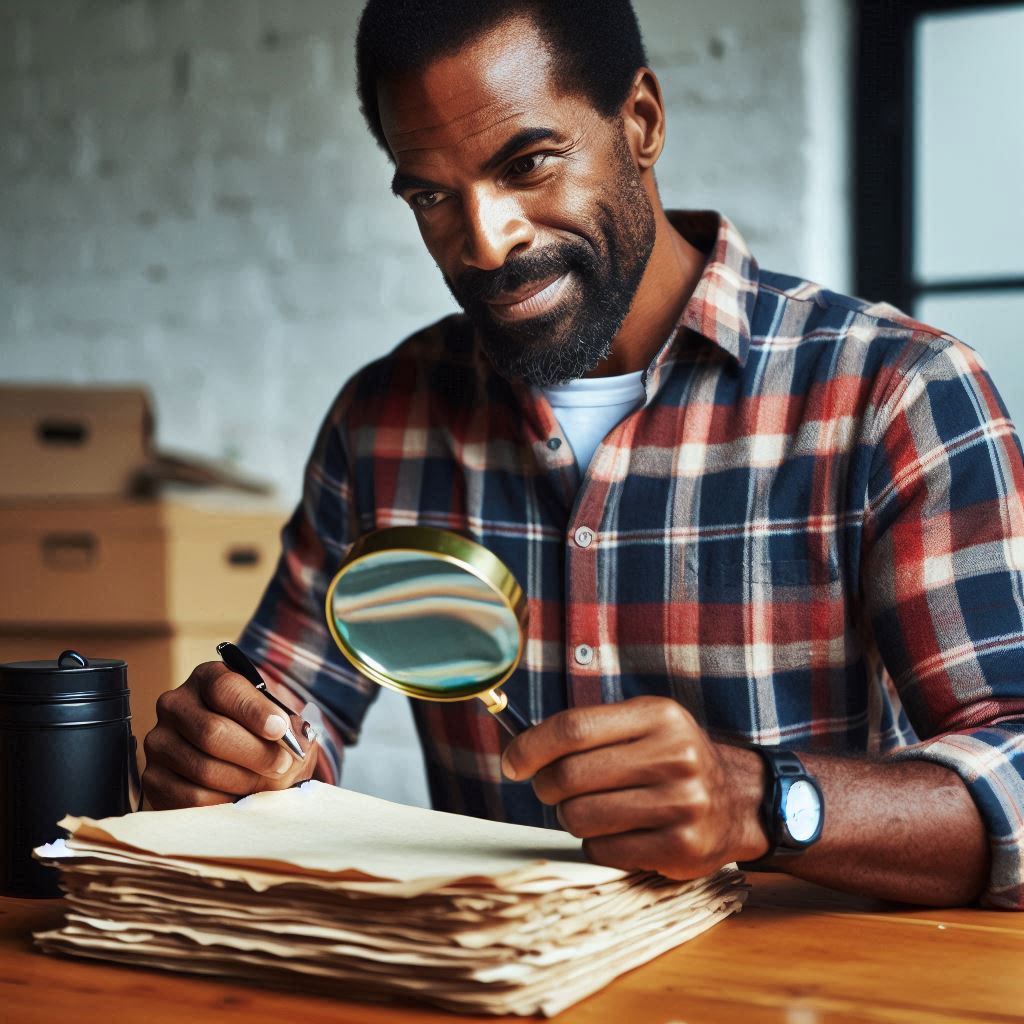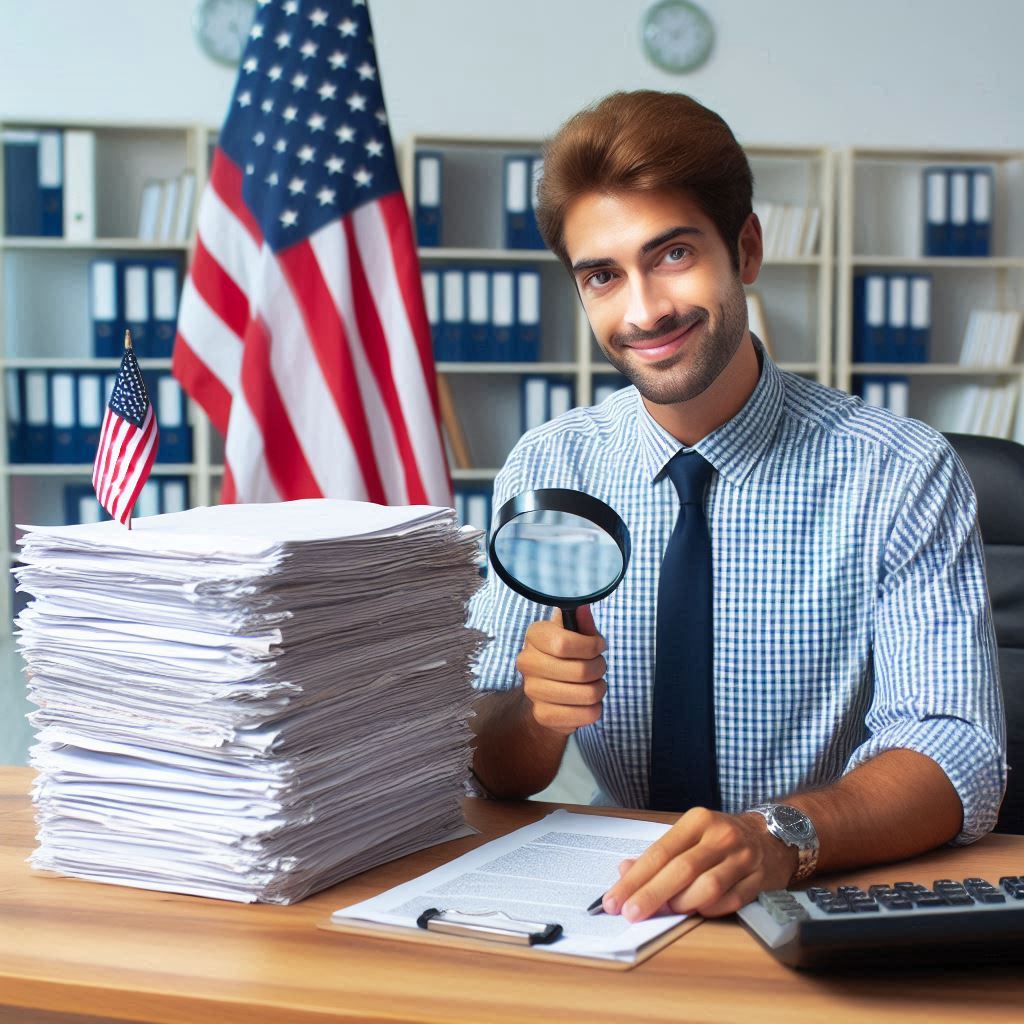Introduction
In the legal world, the effectiveness of a trial can hinge on the composition of the jury.
Jury consultants ensure that a trial’s outcome aligns with the legal team’s goals. They shape the strategies attorneys use to persuade the court.
The importance of selecting the right jury cannot be overstated, as the jury’s perceptions and decisions can significantly influence the verdict.
Psychology is at the heart of this process.
By understanding the psychological profiles of potential jurors, jury consultants help attorneys select individuals who may be more receptive to their arguments.
This involves a deep dive into jurors’ biases, attitudes, and behaviors.
Psychological research uncovers how demographic traits or personal experiences shape a juror’s case perspective.
This insight allows attorneys to predict how jurors might react to specific evidence or arguments, enabling them to tailor their approach accordingly.
This blog post delves into how psychological principles are applied in jury consulting.
Understanding Juror Behavior
How psychologists study human behavior to predict juror behavior
Jury consultants focus on understanding juror behavior. Psychologists analyze human behavior to predict jurors’ actions during trials.
Psychologists employ various methods to study and predict juror behavior, leveraging insights from behavioral science to guide legal strategies.
The impact of biases, beliefs, and attitudes on jurors’ decision-making
One primary focus is analyzing the impact of biases, beliefs, and attitudes on decision-making. Jurors come with their own pre-existing perspectives, which can heavily influence their judgment.
Cognitive biases, like confirmation bias, influence jurors to favor information that supports their preconceptions. This affects their evidence interpretation.
Similarly, personal beliefs about crime or the legal system may sway a juror’s decision, consciously or unconsciously.
Examples of psychological theories used in understanding juror behavior
Psychologists utilize several theories to understand these influences.
The Social Identity Theory posits that individuals’ decisions are often swayed by their identification with certain social groups.
In a courtroom setting, this might manifest in jurors showing favoritism towards or against certain parties based on perceived group affiliations.
Heuristic Processing Theory suggests that jurors use mental shortcuts to make quick judgments, which can lead to oversimplified conclusions about complex evidence.
Attribution Theory helps psychologists see how jurors attribute causes to behaviors and events.
This impacts jurors’ views on witness credibility and defendant guilt or innocence.
Transform Your Career Today
Unlock a personalized career strategy that drives real results. Get tailored advice and a roadmap designed just for you.
Start NowBy examining these theories, psychologists can predict how jurors might lean and develop strategies to counteract adverse biases.
In summary, the role of psychology in jury consulting involves a deep analysis of human behavior to anticipate juror reactions.
Understanding psychological mechanisms helps consultants navigate juror decision-making complexities.
They can then shape more effective trial strategies.
Read: Notary Public Bond: What It Is and Why It’s Important
Jury Selection Process
Psychology plays a pivotal role in the jury selection process, particularly in ensuring a fair trial for all parties involved.
Legal teams can strategically select jurors by understanding their psychological makeup.
This helps choose individuals who remain impartial and objective in their decision-making.
How psychology is used in the jury selection process
Psychologists often work closely with jury consultants and legal teams to provide insights into the behavior and attitudes of potential jurors.
Through psychological assessments and analysis, they can identify biases, prejudices, and underlying motivations that may influence a juror’s decision-making process.
These insights help legal teams tailor their selection criteria to ensure that jurors are not swayed by emotions, personal beliefs, or external influences that may compromise the fairness of the trial.
By utilizing psychological expertise, attorneys can build a strong case that resonates with the jurors on a rational and logical level.
The importance of demographic factors in jury selection
Demographic factors such as age, gender, education, and socio-economic background play a significant role in jury selection.
Research has shown that individuals from diverse backgrounds bring unique perspectives and experiences to the jury deliberation process, leading to more comprehensive discussions and ultimately, a fairer verdict.
Psychologists help legal teams navigate the complexities of demographic factors by analyzing jury pools and identifying potential biases that may arise due to a lack of diversity.
By selecting a jury that represents a cross-section of society, attorneys can ensure that different viewpoints are considered during deliberations, leading to a more well-rounded decision.
Psychological techniques used to ensure a fair and unbiased jury selection
Psychologists employ a variety of techniques to ensure a fair and unbiased jury selection process.
One common approach is the use of mock trials, where psychologists simulate a trial scenario and observe how potential jurors react to different arguments and evidence.
Through these simulations, psychologists can identify potential biases or misconceptions that jurors may hold and provide feedback to legal teams on how to address these issues.
Additionally, psychologists may conduct surveys or interviews with potential jurors to gain insights into their attitudes, beliefs, and values, further informing the selection process.
Transform Your Career Today
Unlock a personalized career strategy that drives real results. Get tailored advice and a roadmap designed just for you.
Start NowOverall, psychology plays a critical role in jury consulting by providing valuable insights into juror behavior and decision-making processes.
By leveraging psychological expertise, legal teams can ensure a fair and impartial jury selection process that upholds the principles of justice and fairness.
Read: The Future of the Title Examiner Profession

Jury Decision-making
In the legal system, jury decision-making is a complex process influenced by various factors.
Understanding how psychology comes into play in this context is essential for jury consulting professionals.
By delving into the dynamics of how jurors reach decisions, consultants can strategize effectively to influence outcomes in favor of their clients.
How psychology plays a role in understanding how jurors reach decisions
One key aspect of jury decision-making is the role of psychology in shaping the thought processes and biases of jurors.
Jurors bring their individual experiences, beliefs, and attitudes into the deliberation room, which can impact their decision-making processes.
This is where consultants can use their psychological expertise to analyze juror behavior and tailor strategies accordingly.
The influence of group dynamics and deliberations on jury decisions
Group dynamics also play a significant role in jury decision-making.
When jurors deliberate together, they engage in discussions that can sway individual opinions.
As a result, understanding group dynamics and how they influence decision-making is crucial for consultants.
By anticipating how group interactions might unfold, consultants can devise strategies to influence the direction of the deliberations in a favorable way.
Psychological strategies used to sway jury decisions in favor of the client
Furthermore, consultants utilize psychological strategies to sway jury decisions in favor of their clients.
By tapping into principles of social psychology, consultants can leverage tactics such as framing, priming, and persuasion to influence juror perceptions and attitudes.
These strategies are designed to subtly shift jurors’ perspectives and ultimately lead them to a decision that aligns with the client’s desired outcome.
Overall, the role of psychology in jury consulting is multifaceted and critical in understanding how jurors reach decisions.
By delving into the influence of group dynamics, deliberations, and psychological strategies, consultants can effectively navigate the intricacies of jury decision-making to support their clients’ interests.
By leveraging psychological insights and strategies, jury consultants can enhance their ability to shape outcomes in a way that benefits their clients.
Read: Essential Skills for a Successful Jury Consultant Career
Transform Your Career Today
Unlock a personalized career strategy that drives real results. Get tailored advice and a roadmap designed just for you.
Start NowWitness Preparation
In jury consulting, psychology plays a pivotal role in witness preparation, ensuring that testimonies are delivered effectively and credibly.
This process involves a range of psychological principles and techniques designed to enhance witness performance and reliability in court.
How psychology is used to prepare witnesses for trial
One of the key aspects of psychological involvement is preparing witnesses for trial.
This preparation goes beyond simply rehearsing facts; it involves understanding how psychological factors can influence a witness’s demeanor and responses.
Psychologists work with witnesses to manage anxiety and stress, which can significantly affect their testimony.
Techniques such as cognitive-behavioral strategies help witnesses control nervousness and present themselves more confidently.
Techniques to help witnesses convey their testimony effectively
Psychological techniques are employed to help witnesses convey their testimony clearly and persuasively.
This includes training witnesses in effective communication skills, such as maintaining eye contact and using concise language.
Psychologists may use role-playing exercises to simulate courtroom scenarios, allowing witnesses to practice and refine their responses under pressure.
This practice helps witnesses become more adept at handling cross-examination and staying focused on key points.
Psychological principles used to enhance witness credibility in front of a jury
Enhancing witness credibility is another crucial aspect where psychology is instrumental.
Psychologists apply principles of impression management, helping witnesses understand how to project honesty and reliability.
They may work on strategies to manage non-verbal cues, such as body language and facial expressions, which can influence how a jury perceives their credibility.
Techniques like maintaining a calm demeanor and being consistent in responses are emphasized to build trust with the jury.
Overall, psychology provides valuable tools and insights for jury consultants, aiding in the preparation of witnesses who can deliver their testimony effectively and credibly.
By applying psychological principles, consultants help witnesses present themselves in the best possible light, ultimately contributing to a fair and just trial process.
Read: Benefits of Hiring a Jury Consultant for Your Case
Persuasion Techniques
Description of Psychological Persuasion Techniques
Jury consultants use a range of persuasion techniques based on psychological principles to influence jurors’ decision-making.
These techniques are designed to appeal to jurors’ emotions, beliefs, and biases in order to shape their perceptions of a case.
One such technique is the use of storytelling to create a narrative that resonates with jurors on an emotional level.
Transform Your Career Today
Unlock a personalized career strategy that drives real results. Get tailored advice and a roadmap designed just for you.
Start NowBy presenting facts and evidence in a compelling and coherent manner, consultants can make a strong case that is more likely to be persuasive.
Another technique is the use of repetition and reinforcement, where key messages are repeated throughout the trial to reinforce their importance in jurors’ minds.
This can help to solidify jurors’ beliefs and perceptions about the case.
Cognitive Biases Exploited in Jury Persuasion
Jury consultants often exploit cognitive biases to persuade jurors to see the case in a certain light.
These biases can subtly influence jurors’ decision-making by affecting how they perceive information and make judgments.
One common bias is confirmation bias, where jurors seek out information that confirms their preconceived beliefs and ignore evidence that contradicts them.
Consultants can use this bias to reinforce jurors’ existing beliefs and sway their opinions in favor of their client.
Another bias is the availability heuristic, where jurors rely on readily available information to make judgments, even if it is not relevant or accurate.
Consultants can manipulate this bias by presenting compelling but irrelevant information that can skew jurors’ perceptions of the case.
Examples of Successful Persuasion Strategies
There have been numerous legal cases where jury consultants have successfully employed persuasion strategies to sway the opinions of jurors in favor of their clients.
One such example is the use of emotional appeals in cases involving personal injury or wrongful death.
By appealing to jurors’ emotions and sense of empathy, consultants can garner sympathy and support for their client’s case.
Another example is the use of expert witnesses to lend credibility to a client’s position.
By presenting expert testimony that supports their case, consultants can bolster the credibility of their arguments and persuade jurors to see the case from their client’s perspective.
Jury consultants use persuasion techniques to shape jurors’ perceptions and decisions in legal cases. Understanding psychology is crucial in this role.
Case Studies
Psychology plays a pivotal role in jury consulting, as evidenced by various case studies where psychological principles significantly influenced trial outcomes.
By applying psychological insights, jury consultants help attorneys understand and shape jury behavior, ultimately impacting the verdict.
Case Study 1: The High-Profile Corporate Lawsuit
In a high-profile corporate lawsuit alleging environmental damage, jury consultants used psychological profiling to choose sympathetic jurors.
They targeted individuals more likely to support the environmental cause.
Psychologists assessed potential jurors’ values, beliefs, and attitudes towards corporate responsibility.
Transform Your Career Today
Unlock a personalized career strategy that drives real results. Get tailored advice and a roadmap designed just for you.
Start NowThis strategy led to the selection of a jury that was more inclined to favor the plaintiff’s arguments, resulting in a substantial victory for the environmental group.
Case Study 2: The Criminal Defense Case
In a criminal defense case where the defendant faced severe charges, psychological experts conducted a thorough analysis of jurors’ biases and attitudes towards criminal justice.
They discovered that certain jurors held strong prejudices against the defendant’s demographic group. This insight allowed the defense team to challenge and remove biased jurors during voir dire.
Consequently, the remaining jury members were more impartial, leading to a more favorable outcome for the defense.
Analysis of Psychological Impact
These case studies underscore the critical role psychology plays in jury consulting.
By leveraging psychological principles, consultants can influence jury selection, jury behavior, and trial strategy.
Understanding jurors’ psychological profiles helps in crafting arguments that resonate with their values and beliefs.
Additionally, identifying and mitigating biases ensures a fairer trial.
In both cases, psychological insights were instrumental in shaping jury decisions and achieving favorable results for their clients.
Psychology serves as a practical tool in the legal arena. It enhances jury consulting effectiveness and influences trial outcomes.
Conclusion
Jury consulting is a dynamic field where psychology plays a crucial role in shaping legal strategies and outcomes.
Understanding the psychology of jurors allows consultants to offer valuable insights into how jurors may perceive evidence, witness testimony, and the overall case.
This knowledge is instrumental in developing persuasive arguments and tailoring legal strategies to resonate with the jury’s attitudes and beliefs.
One key aspect of psychological involvement in jury consulting is juror profiling.
By analyzing demographic information, past behavior, and psychological tendencies, consultants can predict how different juror types may react to various case elements.
This profiling aids in selecting jurors who are more likely to be favorable to a client’s case, thus influencing the trial’s trajectory.
Additionally, psychology helps in crafting effective trial presentations. Juror decision-making is often influenced by cognitive biases and emotional responses.
[E-Books for Sale]
The Big Book of 500 High-Paying Jobs in America: Unlock Your Earning Potential
$19.99 • 500 High-Paying Jobs • 330 pages
Explore 500 high-paying jobs in America and learn how to boost your career, earn more, and achieve success!
See All 500 High-Paying Jobs of this E-Book
1001 Professions Without a Degree: High-Paying American Jobs You Can Start Now
$19.99 • 1001 Professions Without a Degree • 174 pages
Discover 1001 high-paying jobs without a degree! Unlock career tips, skills, and success strategies for just $19.99!




